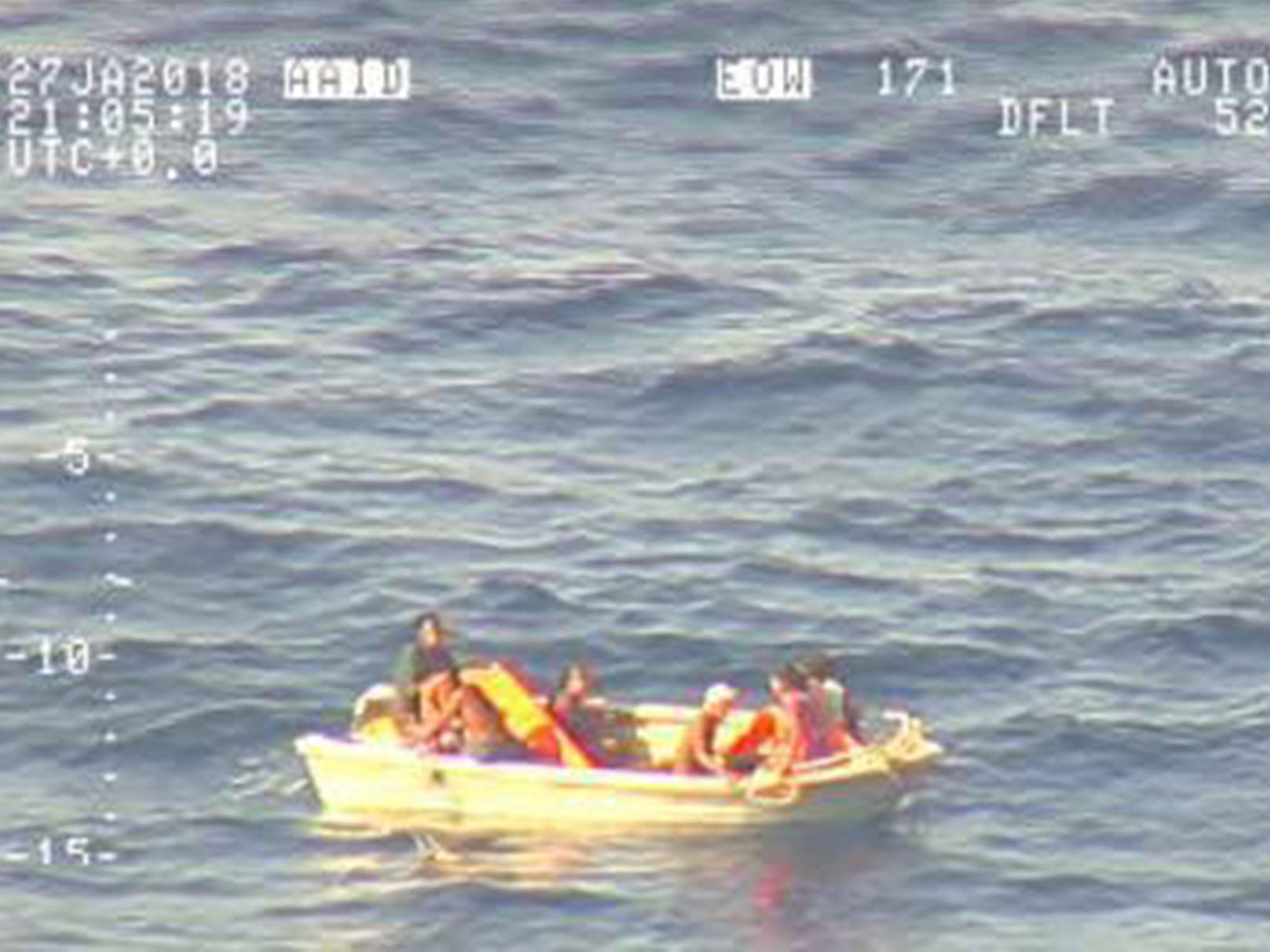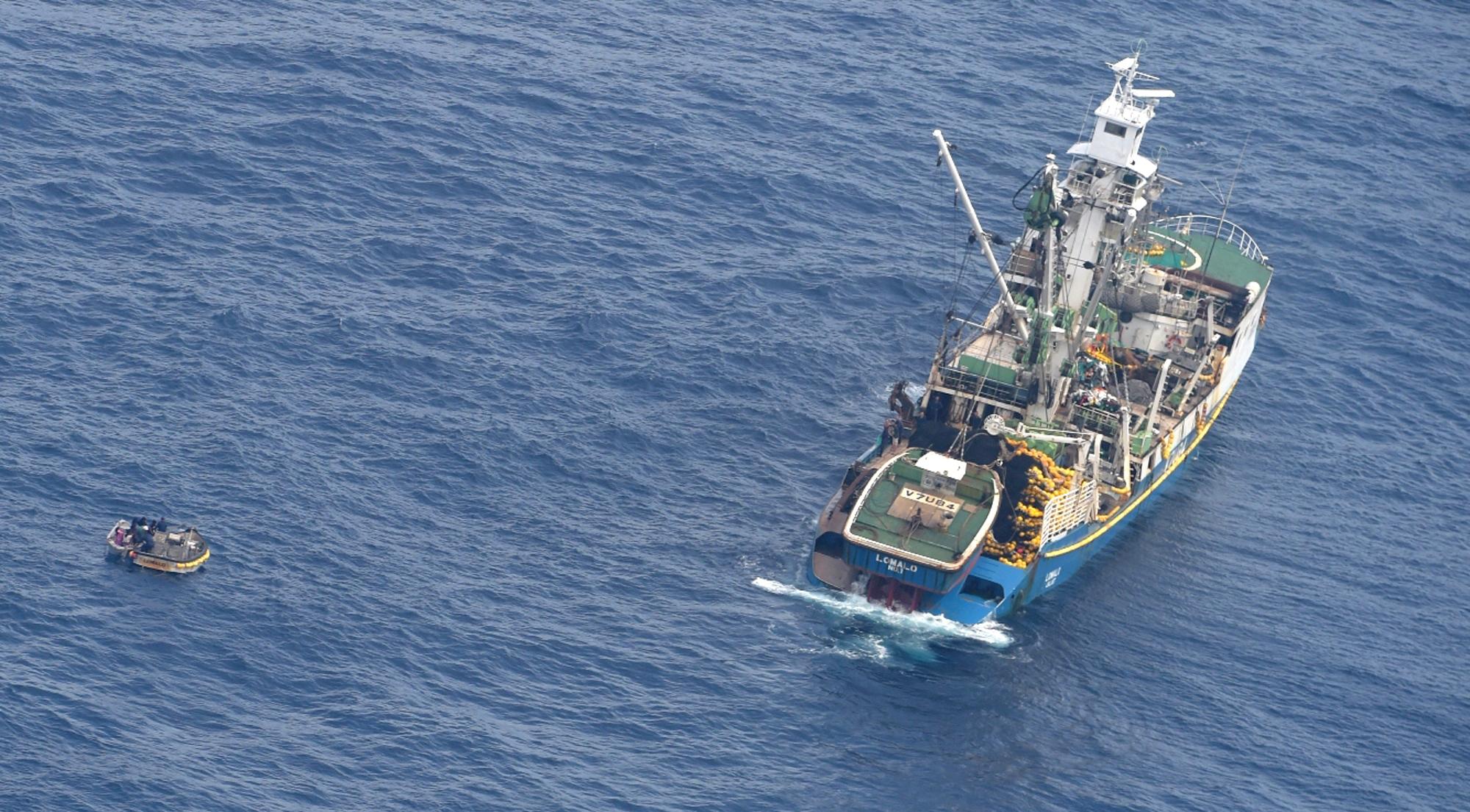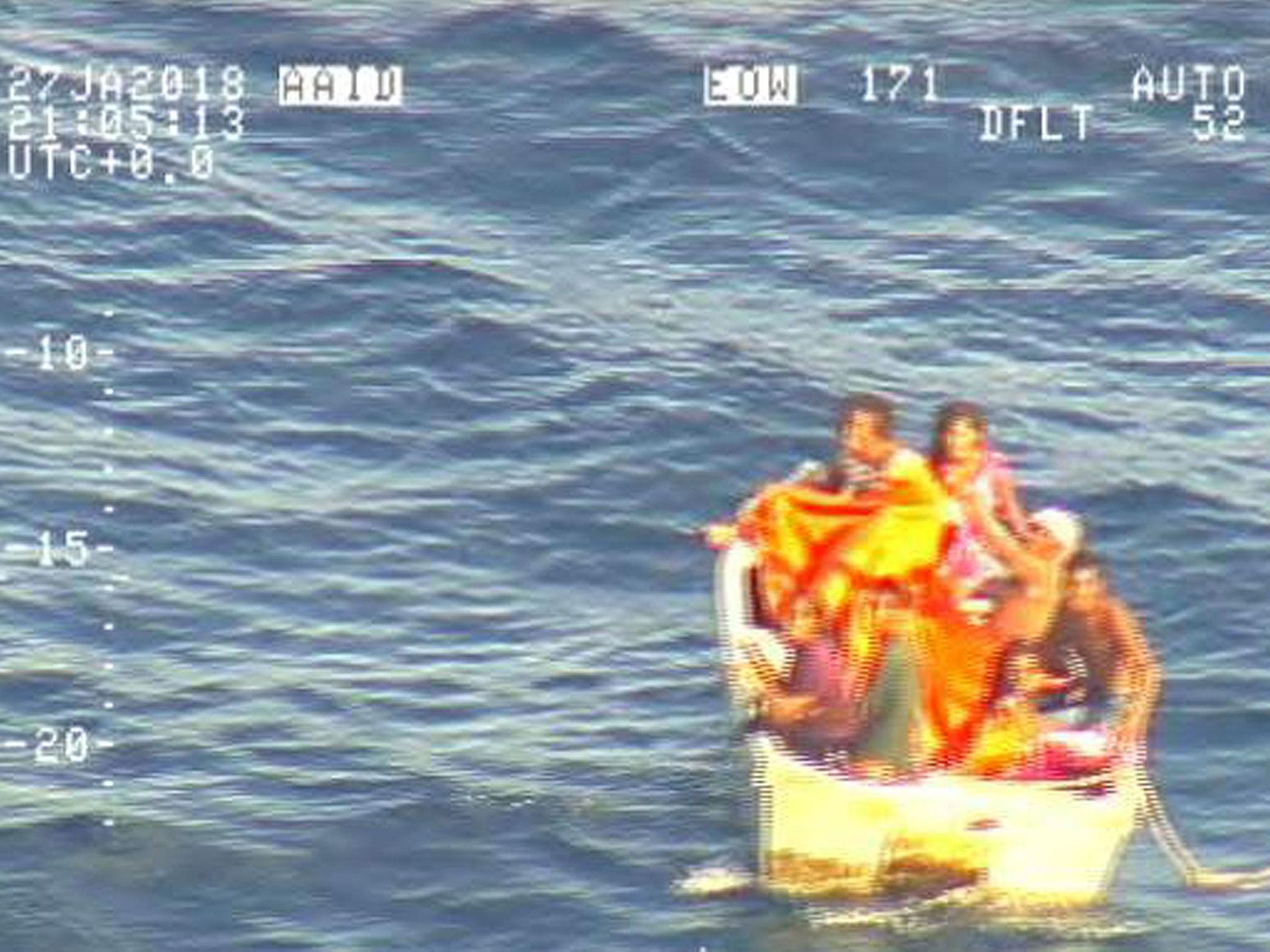Kiribati ferry: Searchers find survivors who had been adrift for four days in lifeboat in Pacific Ocean
Rescuers say there were no signs of any other survivors from boat carrying at least 50 people

Seven survivors have been rescued from a life raft in the Pacific Ocean after drifting for four days in the blazing sun without water.
The six adults and a baby had scrambled onto the small wooden dinghy after the MV Butairaoi ferry they were aboard sank.
The New Zealand Defence Force said the crew of a military Orion plane had used radar to locate the dinghy while searching for survivors.
Air Commodore Darryn Webb said the ferry had been carrying at least 50 people while travelling between two islands in the remote Pacific nation of Kiribati.
Mr Webb said there had been no sign of any other survivors.

The plane dropped supplies to the survivors, including food, water and a radio. The survivors spoke to officials using the radio, describing how they managed to get off the ferry as it capsized, he added.
Mr Webb said the survivors had very little time to react and found themselves adrift without water or an engine. He said they had a blanket or tarpaulin which they may have been able to use to get some relief from the sun.
A fishing boat had changed its course and picked up the survivors on Sunday afternoon, he said.
The dinghy was drifting more than 112 miles (180km) from the nearest major island when it was found.
"Our heart goes out to the baby and to all those remaining of the 50-plus people," Mr Webb said.

While thankful the life raft was found, Mr Webb said it was also heartbreaking the ferry had sunk and the others were still missing. He said there was a lot of debris near the dinghy, which may have been from the ferry. He also said it wasn't clear yet what caused the ferry to sink.
Searchers planned to regroup and interview the survivors before deciding whether to continue the search, he added.
Questions remain as to why it took Kiribati authorities so long to tell New Zealand officials the ferry was missing.
Mr Webb said a Kiribati plane had earlier searched for the ferry but didn't have sophisticated radar equipment.
The MV Butiraoi, a 17.5-metre (57-foot) wooden catamaran, left Nonouti Island bound for South Tarawa on 18 January. The journey of 149 miles was supposed to take two days.
New Zealand rescuers say they weren't told about the missing boat until Friday, eight days after the ferry had left.
Senior Search and Rescue Officer John Ashby said they'd been told the ferry underwent repairs to its propeller shaft just before leaving, which may have contributed to navigation problems.
Kiribati is a remote, impoverished nation of 33 atolls that is home to about 108,000 people.
Additional reporting by AP
Join our commenting forum
Join thought-provoking conversations, follow other Independent readers and see their replies
Comments
Bookmark popover
Removed from bookmarks